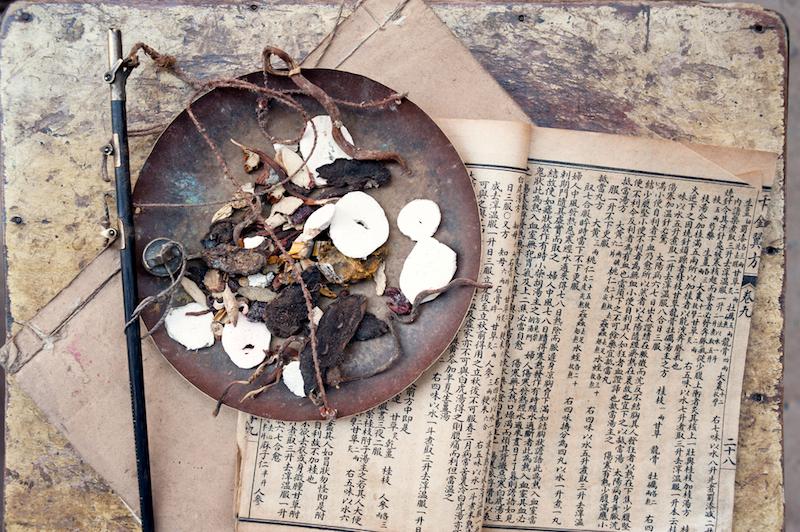Are you intrigued by Chinese medicine’s profound philosophy, but don’t have much of a grasp on what it’s all about? Here’s a quick guide to what lies behind one major aspects of Chinese medicine: Chinese herbal medicine.
What is Chinese herbal medicine? Just herbs?
 (Herbs via Shutterstock)
(Herbs via Shutterstock)
As the name suggests, herbs are the main ingredient in Chinese herbal medicine. Indeed, Chinese herbology recognizes more than 3,200 different types of herbs. Some prominent examples are ginseng and astragalus (root is used).
But that’s not all. Chinese herbal medicine also utilizes a slightly less mind-numbing 300 different minerals, insects, sea-creatures, and animal extracts. Cinnabar (ore of mercury), silkworm, and seahorse are some examples.
The different herb and non-herb ingredients are often combined as formulas, of which there are more than 400 widely known permutations.





